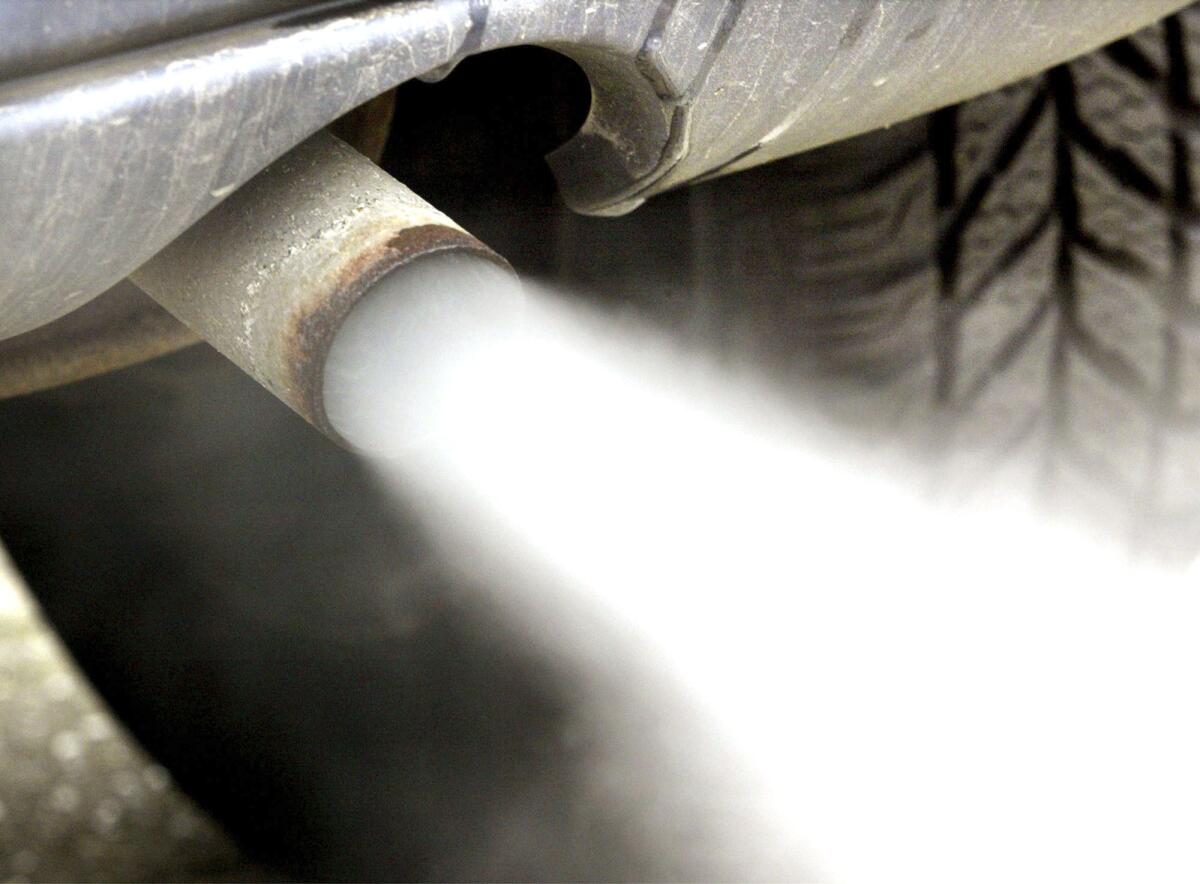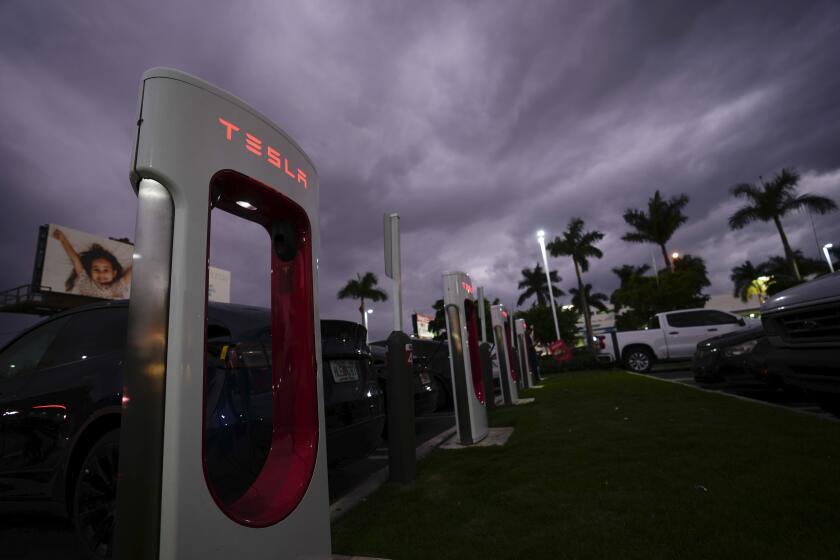Biden is set to propose toughest-ever rules on car pollution to spur EVs

- Share via
The Biden administration is on track to propose the toughest-ever U.S. curbs on car pollution, while stopping short of an electric vehicle mandate or ban on gas-powered models.
The proposed standards on cars and light trucks, set to be announced Wednesday in Detroit, are expected to govern tailpipe emissions of carbon dioxide, smog-forming nitrogen oxide and other pollution from vehicles manufactured for model years 2027 through 2032. The plan was described by people briefed on elements of the proposal who asked not to be named because it isn’t yet public.
Major U.S. automakers have pleaded for requirements extending just a few years, while EV manufacturers such as Tesla say the administration should take advantage of new federal-government investments in charging and battery production to push for even stricter limits on car emissions.
The plan is part of a multipronged Biden administration strategy to clamp down on planet-warming pollution from transportation and electricity, taking advantage of hundreds of billions of dollars of clean energy incentives under the Inflation Reduction Act. The U.S. Environmental Protection Agency, which is writing the new requirements, also is set to propose new rules for greenhouse gas releases from heavy-duty trucks Wednesday and on power plants as soon as later this month.
Limits on car pollution are key to helping the U.S. meet its Paris Agreement commitment to slash greenhouse gas emissions by at least 50% from 2005 levels by the end of the decade and fulfilling President Biden’s ambition for at least half of all new vehicle sales to be electric models by 2030. Although U.S. automakers such as General Motors and Ford have outlined bullish plans for EV sales, environmental advocates say aggressive tailpipe standards are necessary.
The California’s Air Resources Board, who have been mandating emission standards for decades, recently voted to stop selling new gas cars in the state by 2035. But in this political climate, can California continue to lead the way?
“There has to be continuous pressure for improvement” to prevent industry backsliding, said Dan Becker, director of the Center for Biological Diversity’s Safe Climate Transport Campaign.
The EPA declined to comment on the substance of the coming rules because they are currently under interagency review. In a statement, the agency said it’s developing new standards to build on Biden’s clean-energy progress and “support the transition to a zero-emissions transportation future, protecting people and the planet.”
The EPA’s auto standards are performance based — taking the form of maximum allowed emissions per mile — and do not prescribe specific technology for meeting the targets. However, electric vehicles are seen as a key way to fulfill the requirements.
Environmentalists, public health and electric vehicle advocates have lobbied the administration to ensure requirements for model year 2030 vehicles are 75% tougher than those governing 2021 models.
Strong standards are “incredibly important” to sending market signals to accelerate electric vehicle emissions and secure necessary emission reductions later on, said Britt Carmon, a senior advocate with the Natural Resources Defense Council.
The EPA is poised to reject some environmentalists’ requests to set standards through 2035, however. Automakers pushed for a shorter timetable, cautioning White House officials in a Feb. 14 meeting that the trajectory for EVs and emission reductions depends on factors outside their control, including investments in charging infrastructure and crucial mineral production.
The shift will require a “massive, 100-year change to the U.S. industrial base,” and the rule should be based on “a clear-eyed assessment of market readiness,” the Alliance for Automotive Innovation said Thursday.
Every major electric vehicle builder besides Tesla sells competing gas-powered cars. Until that changes, Teslas will dominate EV sales.
The EPA proposal is set to also tighten limits on smog-forming vehicle pollution, potentially forcing automakers to adopt exhaust controls already used on cars sold in Europe, China and other markets.
It’s crucial to stifle pollution from conventional gas-powered cars even as electric vehicles take off, said Paul Billings, national senior vice president of public policy for the American Lung Assn. “We are going to have combustion vehicles being sold into the next decade, and we want to make sure that they are as clean as possible.”
More to Read
Inside the business of entertainment
The Wide Shot brings you news, analysis and insights on everything from streaming wars to production — and what it all means for the future.
You may occasionally receive promotional content from the Los Angeles Times.












